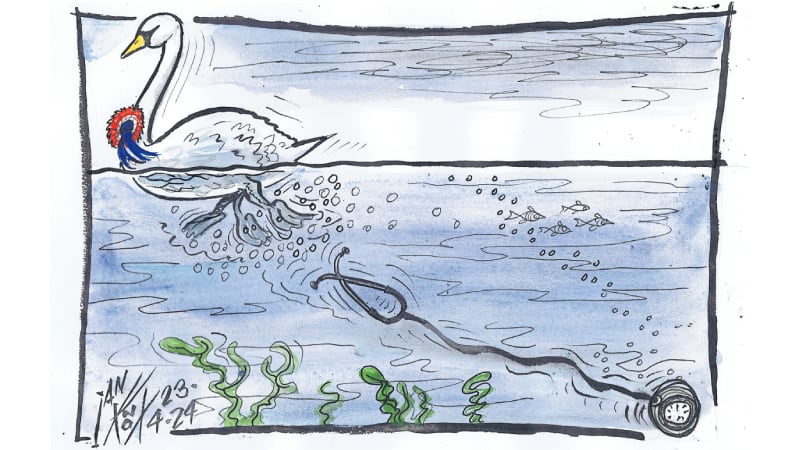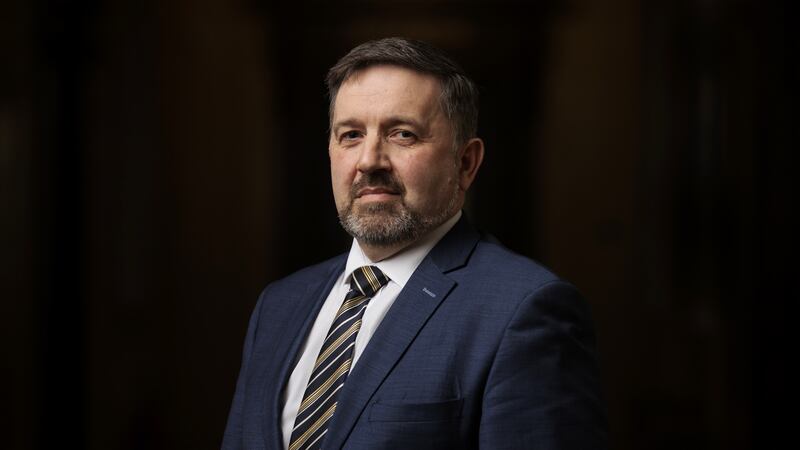WORLD leaders, including politicians in Northern Ireland, are evading their commitments to help the world's poorest countries cope with climate change.
Last month UN scientists unveiled the first volume of a comprehensive report detailing the global impact of climate change. Volumes two and three will follow next year. The Associated Press, analysing the recent report, said: "Many of the ills of the modern world - starvation, poverty, flooding, heat waves, droughts, war and disease - are likely to worsen as the world warms from man-made climate change."
This is not some nightmare scenario created by Hollywood - it's the real impact of the changes to our climate over recent decades. The recent catastrophe in the Philippines should serve as an alarm call that more needs to be done.
While scientists cannot attribute any specific weather disaster to climate change, we do know that it means typhoons like Haiyan will be more frequent and more severe.
In protest at the lack of political action that would give these hard hit countries more clarity on how much money is available to them, Yeb Saño - a delegate from the Philippines, one of the countries in need of climate finance - announced a hunger fast at the UN Climate Talks in Warsaw.
Oxfam Ireland supports Yeb Saño's call for meaningful action on climate finance, saying that murky accounting and a lack of transparency by rich countries is making it difficult for poorer countries to get the money they need to help their citizens cope with the devastating impact of climate change.
The international community must intensify efforts to reduce carbon emissions that are raising global temperatures and help vulnerable developing countries protect themselves from climate change effects before it's too late.
The UN climate negotiations under way in Warsaw at the moment are a key place to commit to decisive action.
Our planet is creaking under the impact of pollution while governments and companies continue to profit from it.
We are all hitting the climate change snooze button, when in fact it's past time that we woke up to the destruction we are causing to our shared planet - and consider the future we are in danger of passing on to our children and grandchildren.
Research shows that 46 per cent of the population is concerned about the impact of climate on food production and that governments are not doing enough to combat that.
We know a hotter world means a hungrier one. The quantity and quality of the food we take for granted will diminish and demand for food will push up prices, in turn exacerbating poverty.
Many people in Northern Ireland are willing to make changes to their lifestyle. Turning down the thermostat and insulating homes, driving more energy-efficient cars and choosing energy-efficient appliances, and eating more local produce are just some of the positive steps already being taken.
But for greater impact they want those in charge and those who pollute on industrial levels to do their fair share. Now it's time for businesses and governments to step up to the mark.
This week's UN climate summit in Warsaw, a major stepping stone along the path to a global climate deal in 2015, offers our politicians an opportunity to change direction towards the future we all want for ourselves and our children - one where the planet's resources are protected to create a sustainable future for all its citizens.
The UK, Ireland and other countries have pledged to collectively raise $100 billion a year to help countries worst affected by changing weather patterns, through the UN 'Green Climate Fund' and other means by 2020.
The Stormont Executive has failed to introduce a Northern Ireland Climate Change Bill to tackle domestic emissions and ensure funding for countries already scarred by climate change.
A Climate Change Bill for Northern Ireland would provide a legislative framework for climate change mitigation and adaptation policies for assembly departments and agencies. This bill could also establish a climate justice fund, similar to that of Scotland.
This would send out an unambiguous message that Northern Ireland takes climate change seriously, providing a framework in which targets could be achieved and giving certainty to future administrations, communities and businesses.
Britain's secretary of state for the environment Owen Paterson will be in Warsaw on our behalf, discussing how the UK will work to reduce our high level of emissions and raise the money for the climate fund.
The talks present European governments with the opportunity to place concrete figures and targets on the table for the next two years, including initial pledges to the fund.
Action on climate change will mean fewer natural disasters, less economic migration, fewer conflicts over resources and less hunger and poverty.
From an economic point of view, action on climate change also makes sense. There are innovations and breakthroughs there for the taking, through developing independent energy sources and a marketplace for renewable power, which could place Northern Ireland and our economy on a more secure footing. Let's focus on what we can do, not on what we can't do. Let's have a conversation about a low carbon future; giving hope to people that it is possible. Let's talk about how action now will benefit our children and create a future that people will want to live in; and vote for. For more information, visit www.oxfamireland.org.
* Jim Clarken is CEO of Oxfam Ireland. * Anita Robinson is away.
* GLOBAL IMPACT: Damaged houses at Typhoon Haiyan-ravaged Leyte province, central Philippines yesterday
PICTURE: Aaron
Favila/AP


